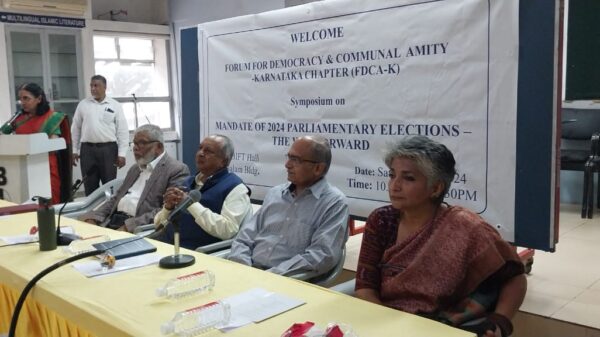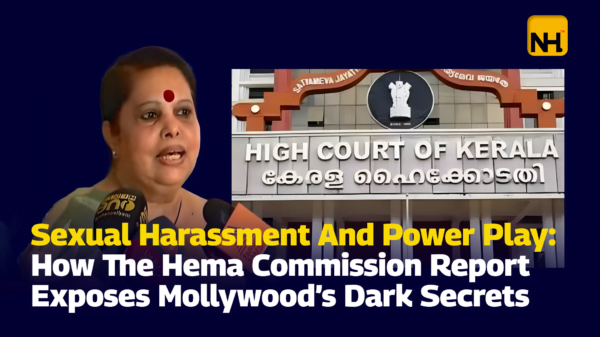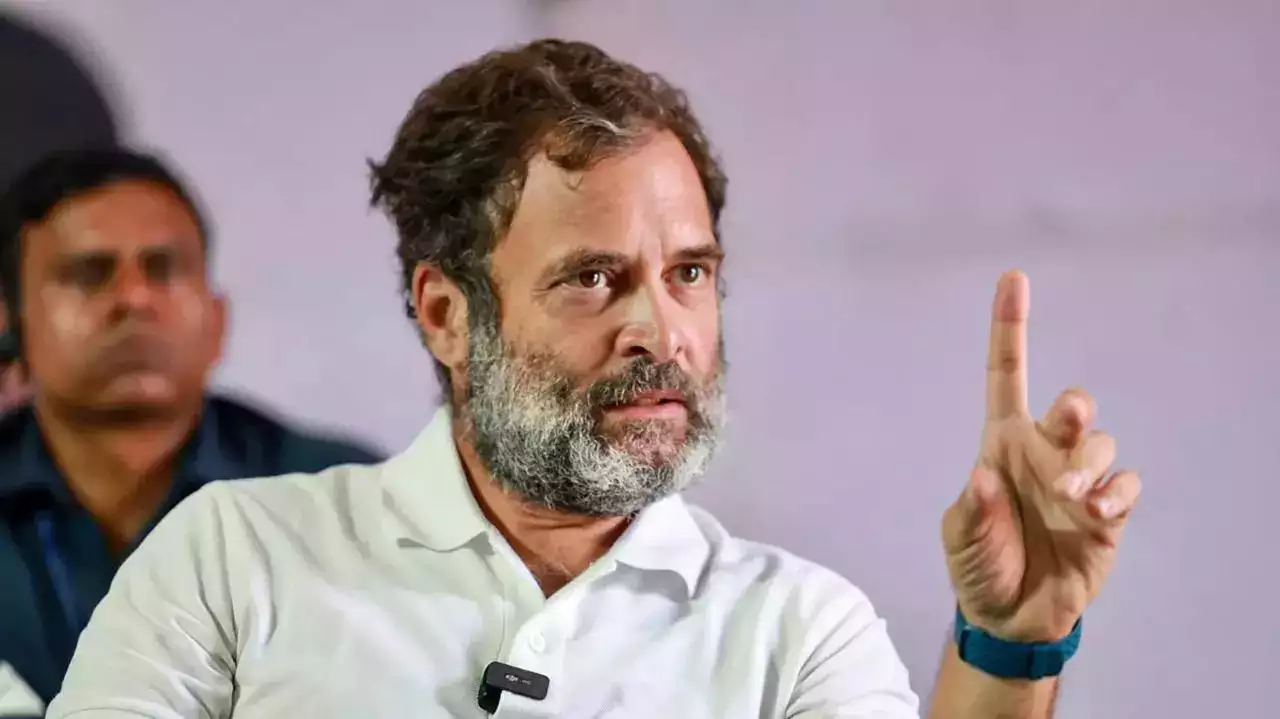To determine if Congress leader Rahul Gandhi should be suspended for allegedly insulting the nation, its democracy, and Parliament during a recent trip to the United Kingdom, the BJP has urged Speaker Om Birla to form a special committee of the Lok Sabha. Rahul has denied the accusations and has refused to retract his remarks.
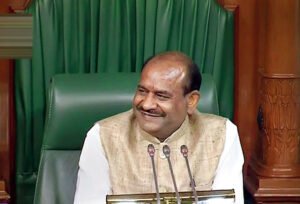
Lok Sabha Speaker, Om Birla
Image Source: Telegraph India
What did Rahul Gandhi say?
On February 28, Rahul Gandhi remarked at Cambridge University that “everybody knows…that Indian democracy is under…attack” and “the institutional framework which is required for a democracy – Parliament, a free press, the judiciary, just the idea of mobilisation…, these are all getting constrained…”.
On March 6, during a discussion in Chatham House, he said, “It is an Indian problem and the solution is going to come from inside… However, the scale of Indian democracy means that [it] is a global public good… If Indian democracy collapses…democracy on the planet suffers a very serious, possibly fatal blow. So it is important for you too.”

Rahul Gandhi Interacts with British MPs
Image Source: The Indian Express
The BJP feels that Rahul Gandhi made “denigrating, unwarranted comments” and spread an “untenable narrative” about Indian institutions on foreign soil as part of a “calculated attempt” to bring them into disrepute.
Is Rahul Gandhi’s statement a breach of Parliament’s privilege?
Subhash C. Kashyap, a constitutional expert and former secretary general of the seventh, eighth, and ninth Lok Sabhas, said that was a decision for the House.
He said, “It can decide whether the member has breached the privilege or a contempt of the House has occurred. The House has full authority.”
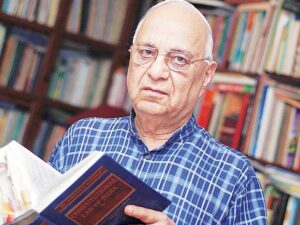
Subash Kashyap
Image Source: CPR
Generally speaking, Rahul Gandhi’s claim that the microphones of opposition MPs are turned off when they say may be a matter for the Privileges Committee because it may be construed as an insult to the Chair; however, his claim that India’s democracy is under attack is probably not a violation of the privileges of Parliament.
However, PDT Achary, another former secretary general of the Lok Sabha, emphasised that the House alone determines what constitutes disrespect.
What is the legality of setting up the special committee?
The House is in charge also here, Kashyap remarked. He said, “The House can set up a committee and decide its terms of reference. It is entirely within its power.” Achary suggested that a resolution for forming such a committee and its mandate could lead to creating a special committee. Before somebody can be punished for an offence, the offence must be defined, Achary stated.
According to him, a committee might be established to look into and penalise an MP, much like the one set to look into the cash-for-votes incident in 2008.

Image For Representation
A system to examine the “moral and ethical conduct of the members” already exists in the Ethics Committee of Lok Sabha. Rahul Gandhi’s case should not be “one of the many issues before the committee,” according to the BJP. Instead, it wants to create a special committee akin to the one established in 2005 to investigate the cash-for-query controversy.
What was the 2005 committee?
A sting operation by the online domain Cobrapost that claimed to reveal 10 Lok Sabha and one Rajya Sabha Member accepting money in exchange for asking questions in Parliament was broadcast on a private TV channel on December 12, 2005. Six of the eleven accused MPs belonged to the BJP, three to the BSP, one to the RJD, and one to the Congress.

Image Source: YouTube
The alleged behaviour of the MPs was viewed as unethical and unscrupulous. A five-person committee led by Congressman Pawan Kumar Bansal was established by the Lok Sabha, along with members V K Malhotra (BJP), Ram Gopal Yadav (Samajwadi Party), Mohammad Salim (CPI-M), and C Kuppusami (DMK). The House Ethics Committee investigated the Rajya Sabha.
What Happened?
The committee said the allegations against the 10 MPs had been established in its 38-page report, which was presented to Lok Sabha. It was mentioned that Jawaharlal Nehru had proposed a resolution in the Temporary Parliament of 1951 that declared it abhorrent for any member to accept payment in exchange for expressing a cause. On December 24, 2005, Parliament voted to expel the 11 MPs.
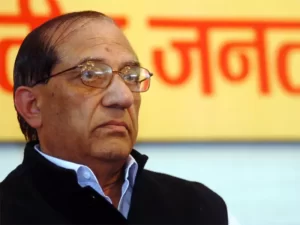
VK Malhotra
Image Source: Times of India
The BJP fiercely objected as six of its MPs were being considered for removal. In a dissent note, V K Malhotra said: “I would not like to become a party to the setting of a precedent by which a member can be expelled from the House without the proper procedure being adopted.” Malhotra argued that “only a court can decide the legal position of the action recommended”.
BJP members walked out before the vote at the end of the five-hour debate on the panel’s report. Then Leader of Opposition L K Advani likened the expulsion to “capital punishment”, which was not “commensurate with the act, definitely of corruption, but more of stupidity”.

LK Advani
Image Source: Outlook India
During the debate, some members expressed concern that the expulsion could set a dangerous precedent and that political competitors might be removed from legislative bodies for trivial transgressions.
But, the ruling Congress contended that the House’s will must be followed.
What happens in the case of Rahul Gandhi?
Given its majority in the Lok Sabha, the BJP will hold a majority in any committee created. The committee can meet every day and call Rahul Gandhi for an explanation. It typically turns in its findings within a month.
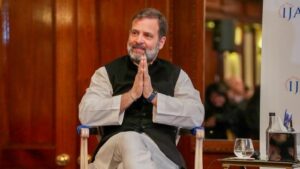
Image Source: Deccan Herald
The BJP’s true desire to get the Wayanad MP suspended is less clear. Some observers believe the party only wants to keep the heat on him; in fact, several lawmakers from the ruling party are concerned that a suspension may help Rahul Gandhi gain political traction and public support. Throughout the suspension, Wayanad won’t have a representative in the House. A by-election won’t be held because it can only happen if the MP is removed.































